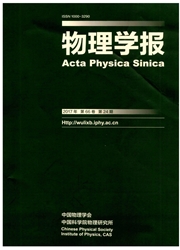

 中文摘要:
中文摘要:
基于差分分析基本原理和混沌系统“迭代”与分组密码“轮”的对应关系,提出了迭代差分分布和差分失效指数的概念,用于评估混沌系统抗差分分析的能力.将混沌系统置于“裸”状态,直接分析混沌系统的迭代差分分布,从而测出差分失效指数.研究混沌系统的安全性,差分失效指数是一个普适的可测的重要的系统特征指数.对TD-ERCS和Logistic混沌系统的测试结果表明,在90%的参数变化范围内,TD-ERCS的差分失效指数等于2(理论上的最小值),相比之下,Logistic的差分失效指数等于55;推知,TD-ERCS是一种能自动免疫差分分析的混沌系统.
 英文摘要:
英文摘要:
Based on the fundamental principle of differential cryptanalysis and corresponding relation between the iteration of chaotic system and the round of block cipher, two important concepts, namely the iterative differential distribution (IDD) and the differential-invalid exponent (DIE) are proposed, which are used in evaluating chaotic system' s power of conteracting the differential cryptanalysis. IDD is defined as the distribution of output differential vs. a given input differential at a varied iterative number, and DIE is defined as the minimal iterative number at which both output differential and input differential are independent of each other. By putting chaotic system into the "naked" state and directly analyzing the IDD, the DIE of chaotic system can be gotten. DIE is a universal, measurable and important characteristic exponent of chaos in studying security of chaos. The tests on beth TD-ERCS and Logistic systems indicate that in the parameter region of 90%, DIE of DT-ERCS is equal to 2, which is the minimal DIE in theory. In comparison, DIE of Logistic chaotic system equals 55, hence TD-ERCS is a chaotic system with the power of active immunity to differential cryptanalysis.
 同期刊论文项目
同期刊论文项目
 同项目期刊论文
同项目期刊论文
 期刊信息
期刊信息
